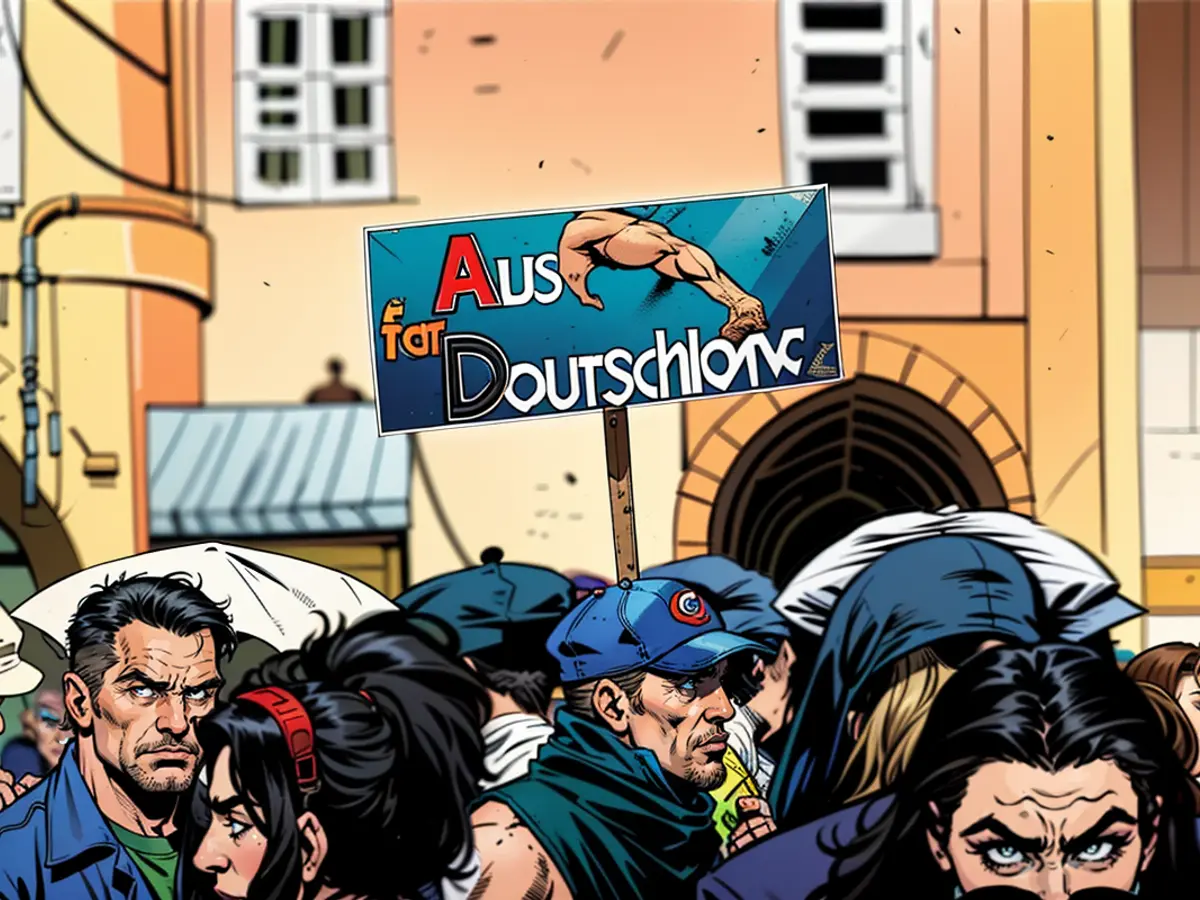Two out of three citizens are worried about the AfD's rise
The AfD is stable at second place in nationwide polls and could become the strongest force in the upcoming elections in Brandenburg, Saxony, and Thuringia. According to an RTL/ntv poll, two-thirds of respondents find this concerning. However, many in the East want the AfD in the government.
After its decline in the first half of the year, the AfD has stabilized at 17 percent in the RTL/ntv Trendbarometer, still far from the Union's 30 percent, but enough for second place in nationwide polls. Many people in the country do not like this development. In another poll commissioned by RTL and ntv, 69 percent of respondents said they found it "concerning" if the AfD significantly gained in the next federal election and became the strongest force in the state elections in Brandenburg, Saxony, and Thuringia.
27 percent, on the other hand, said they were not worried. In the East, the proportion of those concerned is 66 percent of respondents, in the West it is 70 percent. Notably, there is a high polarization: Among those who do not vote for the AfD, 81 percent in the East and 76 percent in the West say they are concerned.
By party, the highest proportion of those concerned are Green voters at 98 percent, followed by SPD supporters at 89 percent. Among CDU and CSU voters, 77 percent are concerned, as are 71 percent of FDP voters and 62 percent of BSW voters.
Should the AfD govern in the East?
That the AfD, given its high share of votes in the East, should also be involved in the local state governments, is considered correct by every third person (33 percent). 61 percent, however, reject an AfD involvement. In the East, support for an AfD participation in government is significantly higher at 41 percent, compared to 32 percent in the West.
Not surprisingly, 92 percent of AfD voters find it right to involve the AfD in the East's governments. This is followed by the BSW camp with 49 percent and the group of FDP voters with 40 percent. Among Union supporters, 27 percent consider an AfD participation correct. The lowest values are among SPD and Green voters, at 15 and 13 percent respectively.
Traffic light's popularity suffers from conflict and chaos
Forsa also asked about the reasons for the unpopularity of the federal government consisting of SPD, Greens, and FDP. Respondents were not given predefined answers, but could name several causes, which were then grouped. 40 percent named "conflict and chaos" as the cause of the poor image, followed by "government doesn't understand what people want" with 25 percent.
14 percent named migration policy and the number of foreigners in the country as the reason for the traffic light's poor image. In the East, this reason was even named by 19 percent of respondents. Among AfD voters, "migration, too many foreigners" is the most frequently cited reason for dissatisfaction with the traffic light coalition at 40 percent.
12 percent named the "FDP (Lindner's financial policy)" as the cause. Other reasons were "too high financial burden on households" at 11 percent, "too much bureaucracy" at 10 percent, "too much money for Ukraine" at 6 percent, and "Scholz's leadership weakness" at 6 percent. The traffic light's energy policy follows with 5 percent.
Only two percent attribute the "negative coverage" to the cause, and one percent blame the long-term effects of the Merkel years. While members of the traffic light coalition often complain about the public image of a divided government, they also like to blame the media and the unfinished homework under Chancellor Angela Merkel for their poor image. However, voters do not seem to see it that way.
These data on opinions about the AfD were collected by the market and opinion research institute Forsa on behalf of RTL Germany between August 9 and 12. Sample size: 1002 respondents. Statistical margin of error: plus/minus 3 percentage points. The data on the reasons for the poor image of the federal government was collected by Forsa on August 8 and 9. Sample size: 1001 respondents. Statistical margin of error: plus/minus 3 percentage points.
For more information about Forsa here.Forsa polls on behalf of RTL Germany.
In the RTL/ntv poll, concerns were expressed about the possibility of the AfD becoming the strongest force in the upcoming elections to the Landtag of Brandenburg, with 69% of respondents finding this concerning. The AfD's potential strength in the state elections in Brandenburg, Saxony, and Thuringia is a topic of debate, as many in the East want the party in the government.








